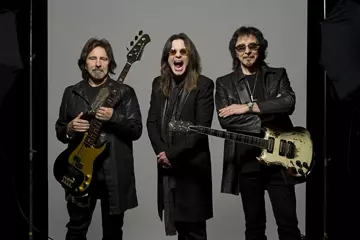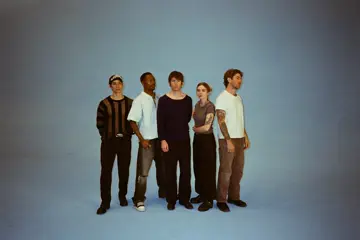12 YEARS A SLAVE

Steve McQueen's cinema is a cinema of bodies. His profound 2008 debut, the Michael Fassbender-starring Hunger, portrayed hunger-striking Irish Republican prisoners in 1981, their struggle manifest in their emaciated, skeletal forms. 2011's problematic Shame made Fassbender a prisoner of his own body: the Irish actor playing a sex addict driven to compulsive debasement by the hormones firing within. And, now, 12 Years A Slave is a portrait of slavery as a study of bodies: tragedy written on the skin of its victims.
For years, the few films that dared tread foot in the Antebellum South looked away – be it evocatively, tastefully, or cowardly – when the whip was drawn; delivering only the sound of its crack, and the cry of its victims. But McQueen's third feature is unflinching in depicting the viscera of slavery: the ribboning skin and risen blood that follows a flogging; the scars that spell out the suffering, the story, of those who wear them.
Based on the 1853 memoir of Solomon Northup, it finds Chiwetel Ejiofor as an educated Northerner – a carpenter and fiddler – kidnapped and smuggled below the Mason-Dixon line; a free man reduced to property in an instant; his dozen years under the yoke of a slavery a living nightmare, a fugue state through which he dawdles with a dissociative detachment. When Ejiofor first steps off the hellboat that's ferried him from Washington to New Orleans – the thresh of its paddle-steamer blades set to the avant-garde doom of Colin Stetson's bass saxophone – he sees a sea of faces scarred beyond belief; women and children evidently not spared the rod. Where most cinematic bloodshed is banal – the stuff of horror-movie splatters or action-movie idiocy– here McQueen gives weight to every drop of blood; and to every bead of sweat, every shed tear, every quivering eye, every tensing muscle.
Steven Spielberg's Lincoln opened the contemporary-film conversation on slavery by having a conversation about slavery, but McQueen's film is never so abstracted, the director's great gift – as always – his ability to remain present, to inhabit an instant. The English filmmaker began as a video-artist intrigued by the form of the single-take, and he still understands the power of refusing to cut. Hunger was brilliantly built around a 17-minute static shot of two men arguing – the Irish Republican issue manifest – and Shame's most emotionally-effecting scene was an unbroken take of a date's awkward beginnings; the soft counterpoint to a film that would later submit itself into sensational, sexual hysteria. And, here, McQueen – shooting on 35mm widescreen, the film big and bright and Oscar-epic compared to his dingy predecessors – again stages another unbroken visual-centrepiece: a lynched Ejiofor strung up so his feet barely touch the muddy Earth beneath, his very life on slippery footing.
Don't miss a beat with our FREE daily newsletter
As Ejiofor's tiptoes slip and slide, like some horrifying dance on the edge of death, in the background slaves go about their toil, farmhands ignore the strange fruit swaying nearby, children play blithely. 12 Years A Slave understands the banality of evil, the whippings writ so familiar that suffering becomes quotidian, part and parcel of the cotton-pickin' experience.
At its worst, the film feels like it's taking dramatic shortcuts: giving us the tale of an educated, eloquent, free Negro drawn into – then able to escape – slavery's nightmare; its black-and-white portrait of Antebellum oppression another Oscarbait movie out to leverage white guilt. But this isn't the tone of the whole, nor true of its most contradictory, divisive characters; white men caught up in moral greys, participants in a system they profit from, participate in, but are tortured by.
Benedict Cumberbatch plays a kindly master who grants Ejiofor his favour; charmed by his feats of engineering and dab hand with the fiddle. But he's the benevolent face of the same oppression: still considering even his favoured Negro his property, still believing his owner's rights foretold in bible verse. Ejiofor is eventually sold to Fassbender, who plays a fire-and-brimstone, lash-and-chain plantation owner who treats his slaves as equal parts cattle and pets; driving them hard all day then playing with them, teasingly, at night. He's obsessively in love with Lupita Nyong'o, his “nigger of niggers,” as much for her unmatched cotton production as her slender, regal face.
As Ejiofor often sleepwalks through horrors with a blank, disbelieving gaze, this means that Fassbender –drunk, devilish, manic – sometimes feels like the drama's true heart; the dark shadow of its dark history. His 'relationship' with Nyong'o is a whirlwind through the cycles of abuse, a fiery tango of love and hate, obsession and revulsion, fires stoked by the Lady Macbeth whisperings of his wife, Sarah Paulson. In a worse film, he would've been simple villain; in John Ridley's screenplay, he's merely a man of his time.
12 Years A Slave is a film of that time; a sober recreation of a distant era that refuses to gloss over America's hateful history, its greatest shame. It could be criticised for being a 'now we know better' movie, out to flatter a modern-day audience for their more enlightened, liberal views. But it's no coincidence that McQueen has made two separate video-pieces – 2002's Western Deep and 2007's Gravesend – documenting the hellish conditions of African mine workers.
The 21st-century is as it ever was: first-world privilege built on the exploitation of foreign workers; the jewel trade sown in blood; Free Trade Zones modern-day Plantations. For those who think iniquity the stuff of yore – that being kidnapped and sold into bondage is but a tale from dark, distant days – the stats on the sex-slave trade suggest little has changed.
Those who don't learn from history are destined to repeat it, and McQueen sees a world that hasn't learnt much at all; 12 Years A Slave, in turn, a history-lesson delivered with the power of a sermon.















